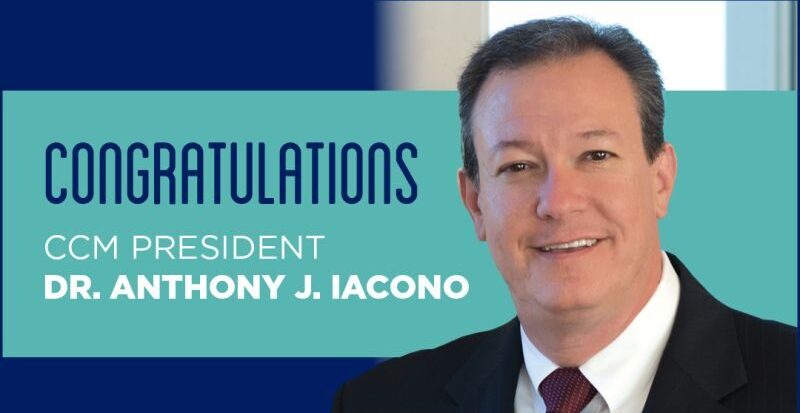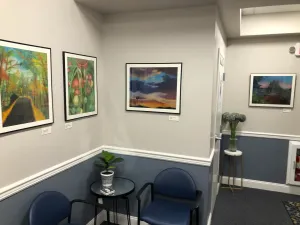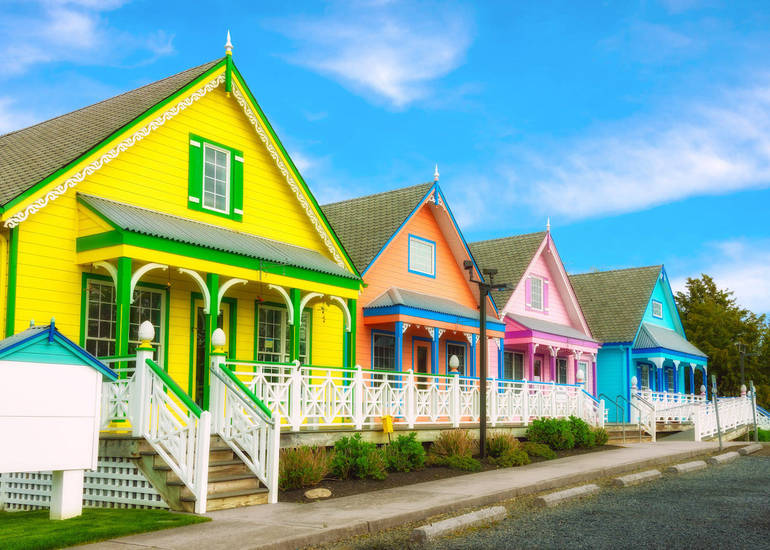Santucci braves the cold in filming of NJN Revolutionary War film.
This past winter, County College of Morris graduate Steve Santucci and his Revolutionary War re-enactment group, the Second New Jersey Regiment, gathered on a frigid December day to film a documentary for New Jersey Network (NJN).
Morristown: Where America Survived revisits the winter of 1779-1780 when Washington’s troops arrived at the densely-wooded area just south of Morristown known as Jockey Hollow to build a log-hut city for their winter camp. The 30-minute film, which took 18 months to produce, is narrated by award-winning actor Edward Herrmann and describes a pivotal moment in the Revolutionary War.
“This is a story that has been overshadowed by Valley Forge, but it was the worst winter in these parts in recorded history, and is a part of our national story,” Santucci says. It was little more than midway through the eight-year war and the support of local inhabitants had waned, leaving the army completely on its own to survive. Soldiers went months without receiving pay and up to weeks without receiving supplies such as food, clothing and equipment to run the camp. Often, they went hungry for days.
“The troops could have dissolved, but they didn’t,” he says, “They continued to fight for people who no longer supported them and that is a testament to their courage and character.” The documentary, based on a book by John T. Cunningham entitled The Uncertain Revolution chronicles how those stalwart soldiers saved the army–and the American Revolution–from the brink of disaster.
A history teacher for West Morris Mendham High School, Santucci has participated in Revolutionary War re-enactments for almost a decade. The Morristown National Historical Parks Superintendent, Randy Turner, put him in touch with NJN producer Bob Szuter who was seeking re-enactors for his documentary.
“I worked with him in getting the re-enactor talent for different film shoots and made recommendations for locations for filming,” Santucci says. “A lot was based on weather. We both watched for the potential for snow. When we knew there would be a snowfall, we got the re-enactors out for filming.”
In late December, snowfall occurred on a Friday and the next day they filmed marching scenes. They also chopped down trees in the snow to give the appearance of preparing the ground for huts. In the spring, the re-enactors used the felled trees to build huts, so nothing was wasted.
“During one of the snow scenes, it was so cold that two individuals developed frostbite, one in his toes and another in his fingers,” Santucci says. Both recovered, but they had the dubious privilege of experiencing, first hand, some of the rigors endured by soldiers of the Continental Army.
Santucci has always been interested in history. He remembers when he was as young as five reading about local and military history. He read Civil War magazines his father had lying around. He also lived in a house built on an old railroad bed and grew up on Lake Hopatcong with its historic canal and old hotels. So when he went to college, majoring in history was a natural progression for him.
“I had some great history professors, without a doubt, at the County College of Morris,” he says. “Their passion and their love for their subject matter was noticeable.” He still is in touch with several professors who he contacts a few times a year to share what is going on in his life and career.
A history teacher for 13 years, he shares their passion for the subject. He has worked on several documentaries for the History Channel and NJN that are used in museum exhibits at Mount Vernon, Virginia, and at Washington Crossing State Park. When asked why history captures his interest, he replies “History is important because it tells us who we are, where we are and where we might be going.”
The NJN documentary covers many Revolutionary War events that occurred near Morristown including the worst winter in recorded history, an encampment with thousands of starving and near-mutinous soldiers, and an invasion by the British. In looking back on the months of filming, what sticks out most in Santucci’s mind is what might have made the strongest impression on the soldiers, themselves–the cold.
“I can’t remember a January that has been this cold where we had single digits during the day,” he says. One morning, just as the cameras were about to roll, the director instructed everyone to act cold. “We all started laughing. ‘We don’t have to act cold,’ we said, ‘it IS cold!’”



